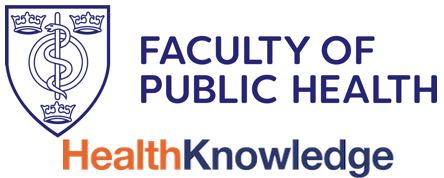Epidemiology of Infectious Diseases: MRSA
Causal agent
Varieties of Staphylococcus aureus, a bacterium commonly found on human skin and mucosa, which are resistant to methicillin and other commonly used antibiotics including oxacillin, penicillin and amoxicillin1.
Common clinical features
Ranging from minor skin sepsis to more life threatening infections.
A Range of clinical syndromes associated with S. aureus as outlined by, Hawker et al.2.
- Skin infections (folliculitis, carbuncle, boils, impetigo).
- Osteomyelitis.
- Bacteraemia and septicaemia.
- Staphylococcal pneumonia.
- Cellulitis.
- Conjunctivitis.
- Septic arthritis.
- Toxic shock syndrome.
Epidemiology
- Worldwide: A major cause of nosocomial infection.
- Community acquired infection may occur when hospital patients are discharged
- In England and Wales MRSA as a proportion of total S. aureus increased from 2% in 1990 to 42% in 2000 and is attributed to the emergence of new strains, failure to maintain good hospital hygiene including hand washing, heavier usage of hospitals, reductions in hospital staffing2.
Reservoir
Colonized or infected humans. Rarely animals.
The bacterium live harmlessly on the skin and in the nose of up to 30% of the general population.
Mode of transmission
- Person to person, through contact with secretions from infected skin lesions, nasal
- Directly on the hands
- Indirectly on equipment and the environment.
Incubation period
Variable, 4-10 days.
Period of Communicability
While the infection or the carrier state persists.
Prevention and control
- Thorough hand washing and drying between caring for people, and whenever necessary, has been shown to be the single most important measure in reducing cross-infection.
- Basic infection control practices are key to the prevention and control of MRSA in health care settings.
- The Methicillin resistant Staphylococcus aureus (MRSA) bacteraemia Enhanced Surveillance Scheme (MESS) has been mandatory for all NHS Acute Trusts in England since October 2005.
References
- Heymann D L, editor, Control of Communicable Disease Manual. 18th ed. American Public Health Association; 2004.
- Hawker J, Begg N, Blair I, Reintjes R, Weinberg J. Communicable Disease Control Handbook, Blackwell, 2005.
Further Resources
Guidelines for the control and prevention of meticillin-resistant Staphylococcus aureus (MRSA) in healthcare facilities. E. Coia, G.J. Duckworth, D.I. Edwards etal. J Hosp Infect 2006; 66 (S1):1-44.
© CM Kirwan 2006
